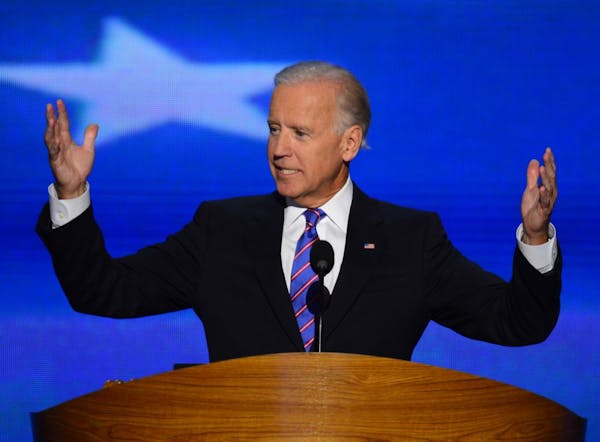Two months left. Now -- after a fever-year of caucusing and nine-nine-nine-ing and moon colonies and talking to chairs -- the presidential campaign is supposed to start getting interesting.
The coming weeks will bring four debates, a new avalanche of attack ads, and massive efforts to turn out voters. As a distracted country begins to tune in, candidates will focus on the sliver of Americans who are political enough to vote but not so partisan that they've already decided.
On Friday, President Obama and Mitt Romney began their sprint, each appearing in multiple states. Both focused on new jobless figures, the latest signal of the dismal economy that has hung over this campaign from the start.
"We know it's not good enough," Obama told an audience in Portsmouth, N.H. "We need to create more jobs, faster."
Defining moment may still be ahead
Even now, after all that Romney and Obama have already said and done, it's likely that many of their campaigns' defining moments are still in the future. At this point in 2008, for instance, Lehman Brothers was still in business. Joe the Plumber was still just Joe, a plumber. And Obama was behind.
This year, Romney is hoping that the next plot twists will favor him. "I know there's a lot of bad news out there, but I'm looking beyond the bad news," Romney said in Orange City, Iowa, trying to project optimism about both the U.S. economy and his own campaign. "I'm looking over the hill and seeing what's going to happen just down the road just a bit. And what's going to happen is America's about to come roaring back."
This is the last lap of a race that has always been close. Obama has a slight lead in two of eight key swing states: Florida and New Hampshire. But the polls show the remaining six -- Virginia, Ohio, Iowa, Colorado, Nevada and Wisconsin -- are anybody's guess.
At this point, few voters seem to be genuinely undecided. Polls show that less than one in 10 is genuinely open to changing his or her vote. But now, two vast machines -- campaigns and allied organizations with at least $1 billion to spend -- will set out to change the minds they can and motivate the ones already on their side.
On Friday, Romney's campaign rolled out a $4.5 million ad buy, 15 new TV spots in eight states, which said: "We're not better off under President Obama."
"This is when ordinary people, as opposed to you and I ... really begin to pay attention," said Candice Nelson, a professor at American University.
Debate may shine next spotlight
The next key moment may be the first presidential debate, to be held Oct. 3 in Denver. Both have faltered in this spotlight before: This spring, Romney offered Gov. Rick Perry a whopping $10,000 bet. In 2008, Obama offered rival Hillary Rodham Clinton a backhanded compliment that was mainly backhand: "You're likable enough."
On Friday, however, the two campaigns remained locked in their old long-distance debate, going nowhere.
"President Obama is not a bad guy. He's good at giving great speeches. He's just really bad at creating jobs," Republican vice presidential nominee Paul Ryan said after a jobs report showed that the economy added a paltry 96,000 jobs in August.
Obama argued again that he had prevented a catastrophe. He said Romney was offering only tired ideas for fixing the mess. "Tax cuts, tax cuts, gut some regulations, oh, and more tax cuts," Obama said derisively. "Tax cuts when times are good; tax cuts when times are bad. Tax cuts to help you lose a few extra pounds."
There was also something even more tired: a debate about a speech. Romney aides panned Obama's convention address, arguing that it fell flat in prime time. But Obama believes he "did exactly what he came to the convention to do last night," campaign spokeswoman Jen Psaki said. Before he went on stage, she said, his daughters, Malia and Sasha, reenacted a scene from the movie "Hannah Montana," in which they told him, "Go get 'em, baby," and Obama "really enjoyed that. It made him laugh, and it just kind of reminded him of what's important."
Some Nikki Haley voters are hanging on to her candidacy and, like her, refuse to endorse Trump
Biden just signed a bill that could ban TikTok. His campaign plans to stay on the app anyway
Arizona House advances a repeal of the state's near-total abortion ban to the Senate

